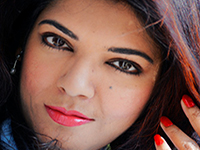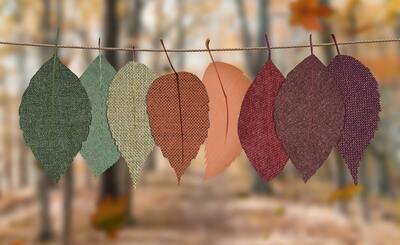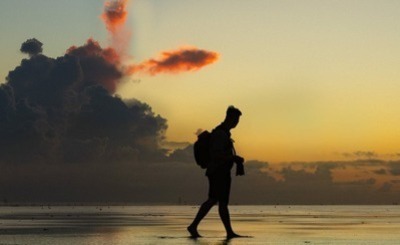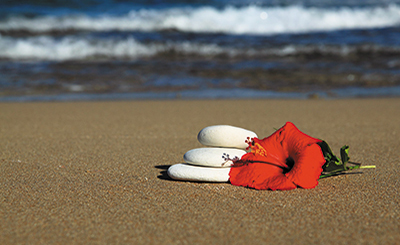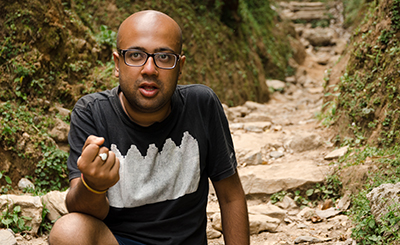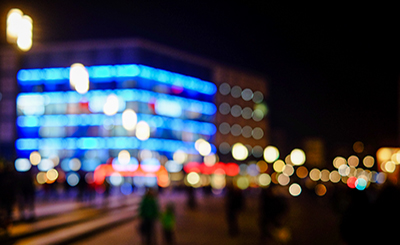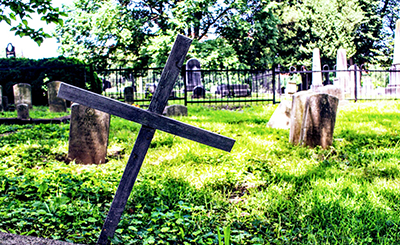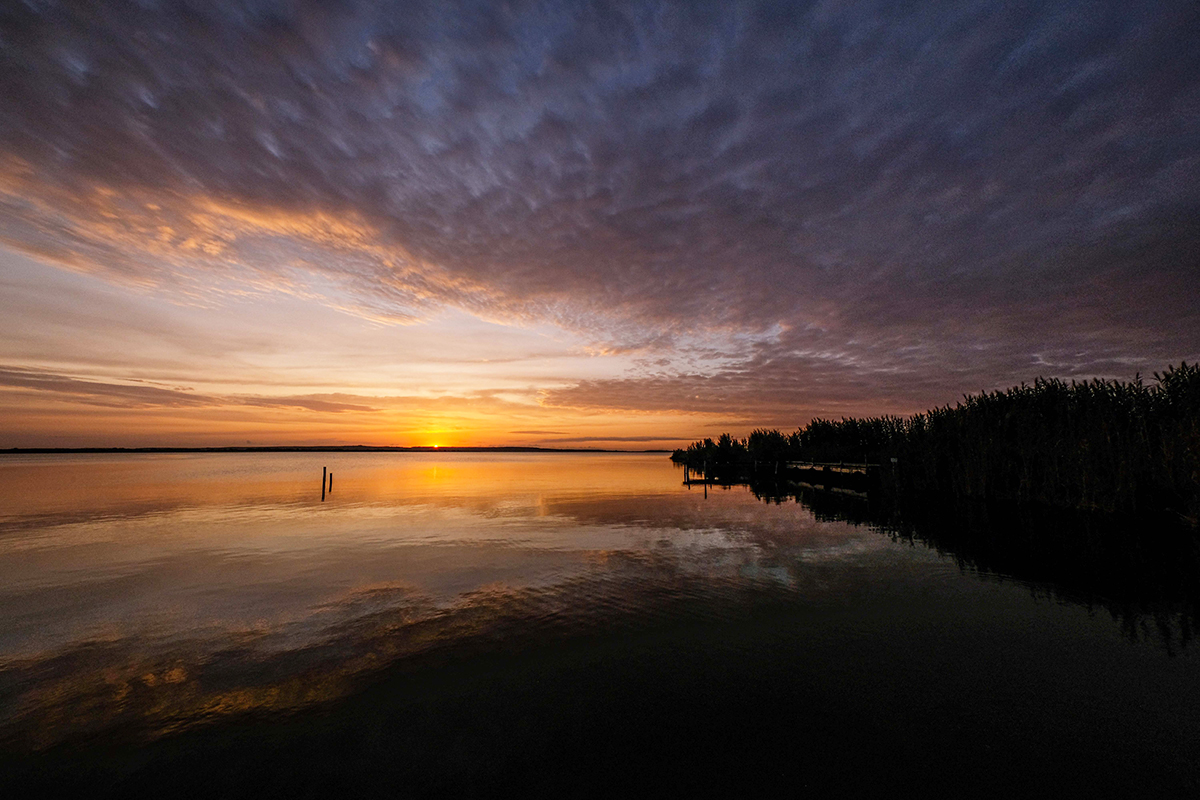
I allow the poem to glide by itself
I write journalistic pieces, research papers, essays, memoirs, and reviews to explore what is known. Poetry is a realm of the unknown. Unseen. One has to enter its kingdom, live through its darkness, wander in its hidden valleys and be ready to shape one’s own thoughts and feelings disguised as images, lines, sounds, and at the same time decipher the music that words sitting next to one another exchange. And sometimes, you have to dive deep into the syllables, wade through their dark waters and set free from the deep tangles what sits coiled in your belly i.e., your fears, what you refuse to acknowledge and acquaint with.
It is not an easy task to swim in bottomless worlds and fish out sunken ships with rusted hulls. The weight is enormous. However, once you are on the surface, the burden lightens, floats airlike, surrounds you like scent. And then, you see, as poet Nina Pick writes: “… the luminous globe behind / the poem’s dark ribs…”; you pluck it like a fruit putting your hands inside the tangled mess of your own heart. Mind you, you bleed in the process, get wounded, swearing never to go in that wadi again — but without it you cannot live for long, it is like breathing without oxygen.
In 1985, Audre Lorde wrote in her essay ‘Poetry Is Not a luxury’: “It is a vital necessity of our existence. It forms the quality of the light within… ”Poetry is not a fancy time pass. It is the essential scaffolding to hold life. To act as the blank canvas to draw what you otherwise can’t. That’s why poems carry images that find home in many hearts and have power enough to wake them from the idle dream — to make them dream the real dreams and actualize them. Many of the poems have come to me when I actually did not have the strength to address my own feelings. Yet, they poured themselves in — sluicing forward and finding space I thought did not exist in my heart.
I don’t write using strict schemes/patterns. I don’t endorse Western canonization and mix different styles that automatically create the frame of the poem. I allow the poem to glide by itself using one image or a cluster of a few. Many times, I write the draft and let in rest in my notebook as with time it gets filtered and you see it with a clearer eye discarding what no longer feels part of the poem. A lot happens to your writing when you are actually not writing. The perceptions, impressions, images silently go through distillation getting changed in the process. They are no longer raw, malleable. They take their own shapes ready to merge in words opening their seams bit by bit. I often try automatic writing when I get a writer’s block. I trash most of what I write during that period, but manage to save one word or an image that leads me to the doors of other words or images.
You can never underestimate the power of a word. It holds so much intensity like vapour before it becomes rain and then turns into a storm. Writing cannot come without reading. You fill the vessel and what spills out is your creative writing. I often return to the works of Mirza Ghalib, Faiz Ahmed Faiz, Jibanananda Das, Mahmoud Darwish, Allama Iqbal, Anna Akhmatova, Pushkin, Basho, Tomas Tranströmer, Miroslav Holub, Bin Ramke, Risto Ahti, Constantine Cavafy, Hafez, Kathleen Jamie, Tracie Morris, Wisława Szymborska and several others. Poetry like energy flows and must flow from one poet to another.
Yellow Sea Glass
— at the port of Aberdeen
The silhouette of sea is borrowed from a dream
that couldn’t hold still till it merged in the broken
glass your fingers grazed. Glazed with salt,
the taste of blood. Tossed in drops.
How quiet the seagulls are above the mad waters
glittering blue as fresh ink would drying
on the palm when you secretly write a name
falling inside you gliding past the glade your heart
once stepped in. There, there I carry the rustle
of maple leaves whispers of fall
epistles to the ground. Flickering
beyond the Atlantic. Little cartographers that see
seasons and seas ripen, the light of light polishing
a dim yellow the day everything sank
on the soft mud as God’s fingers would sink often
in a human heart constructing walls, varnishing veins.
The clink and tinkle of its glass never stops. Never
loud enough to challenge the crashing and swashing
of waves against the body. The bits sip the sea, chip
splash, dash year after year, deep in the ways of water
and one day, they dock. The shores salted and silted,
tiny pieces cap the howl in crevices. Still and tranquil
their cracks smoothed and filled with the last sunlight —
lanterns ready to triumph time and its tyranny of ice moons.
Untitled
You take the teabag out from the sachet the way a child opens a greeting card while it
is still in its envelope. A small paper frame holding the school, benches, bells, and
notebooks. It pops up with tiny blue birds perched atop creamy flowers dusted with
glitter — a waning star on your fingertips wipes the porcelain of daily habits
is still in its envelope. A small paper frame holding the school, benches, bells, and
notebooks. It pops up with tiny blue birds perched atop creamy flowers dusted with
glitter — a waning star on your fingertips wipes the porcelain of daily habits
before it bursts
like a river forgetting its course, emptying itself for snowflakes that come down with the
wind but never reach her soft bed; like the prophecy in a teacup that never comes out
from lips. The world halts, the avalanche in your heart begins.
wind but never reach her soft bed; like the prophecy in a teacup that never comes out
from lips. The world halts, the avalanche in your heart begins.
The essay and the poems are part of our Poetry Special Issue (January 2022), curated by Shireen Quadri. © The Punch Magazine. No part of this essay or the poems exclusively featured here should be reproduced anywhere without the prior permission of The Punch Magazine.
More from The Byword
Comments
*Comments will be moderated



